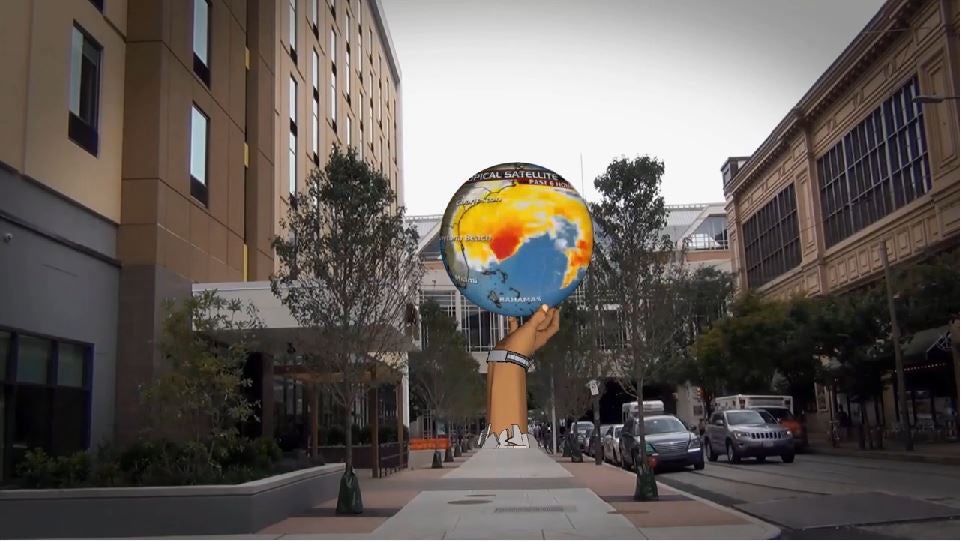City Council approves 3-D billboards in Center City

Philadelphia City Council voted on Thursday to approve legislation that would allow two animated, digital, three-dimensional billboards to be placed at key corners in Center City.
Under the legislation, which was approved by a vote of 13-3, the signs—called “Urban Experiential Displays” by their proponents—could be placed across from the Reading Terminal Market at 12th and Arch and outside the Convention Center at Broad and Arch.
Opponents and supporters of the bill showed up in droves to the Council meeting. Council President Darrell Clarke allowed a few witnesses from each side to testify. Over the last few weeks, dueling petitions have been circulated trying to arouse both support of and opposition to the bill. At last count, the signatures added up to 906 against, 385 in support.
Opponents of the legislation, representing Scenic Philadelphia, the Design Advocacy Group, and a few downtown civic associations, said on Thursday that the signs are oversized, garish and ugly, and that the bills would enrich one billboard company—Catalyst Outdoor—without serving a public purpose. Supporters noted that the signs would help fund a few local nonprofit groups, including Reading Terminal Market and Avenue of the Arts.
Councilman Mark Squilla, who introduced the legislation and whose district the signs will be placed in, framed the issue as one of changing times. He said that Philadelphians had once been opposed to outdoor dining and constructing buildings taller than the William Penn statue on City Hall. He said the support of the nearest neighbors—in the form of the groups that would receive yearly payments from the sign company—was the most important factor to him.
Given Council’s track record of voting unanimously on bills that impact just one Council District, Thursday’s 13-3 vote in support could actually be interpreted as a resounding rebuke of the legislation.
Voting against the bill were 2nd District Councilman Kenyatta Johnson, who’d previously asked Squilla to remove a sign from the bill that would have been placed in his district, and At-Large Councilmembers Blondell Reynolds Brown and Wilson Goode, Jr.
Both Brown and Goode said after the vote that they had opted to oppose the legislation because of late amendments that watered down the Planning Commission’s authority to review the individual signs in the future. Initially, the bill allowed both the Planning Commission and the Art Commission to approve or reject individual design plans for each sign. When the bill was amended last week, Squilla removed the Planning Commission’s approval power, leaving only that of the Art Commission.
“I am not against the concept, and I voted for both bills in Committee,” said Councilman Goode. “But since the Committee vote, the first bill was actually amended to change the approval process. I’m not comfortable with the changing of the process, removing the Planning Commission’s original role.”
The Nutter Administration said on Wednesday that the Mayor will spend the next few weeks discussing similar concerns with Council members before deciding whether to approve the legislation.
“From the Administration perspective, this bill slashes protections for residents, businesses and visitors near any proposed UED because it removes the provision for an automatic review by the City Planning Commission, which prior to the change was charged with making an independent, expert review of the UED’s impact on the physical environment,” Mark McDonald, Nutter’s press secretary, told WHYY.
“The Planning Commission has in its authority overseeing development,” Councilman Goode continued. “In the original bill it talked about a Plan of Development needing to be approved by the Planning Commission. And I think that’s an appropriate role that was in the bill when I voted for it in Committee.”
Councilwoman Reynolds Brown said she voted against the bill for the same reason. The Planning Commission should have a say over these designs, she said. But she supports the concept of three-dimensional digital billboards.
“Conceptually and philosophically, it’s clear that Philadelphia is headed in that direction,” said Reynolds Brown.
For a pretty interesting curriculum on how controversial proposals move through City Council— and yes, we use the word “interesting” loosely around here—peruse PlanPhilly’s earlier coverage of this legislation listed below.
WHYY is your source for fact-based, in-depth journalism and information. As a nonprofit organization, we rely on financial support from readers like you. Please give today.


